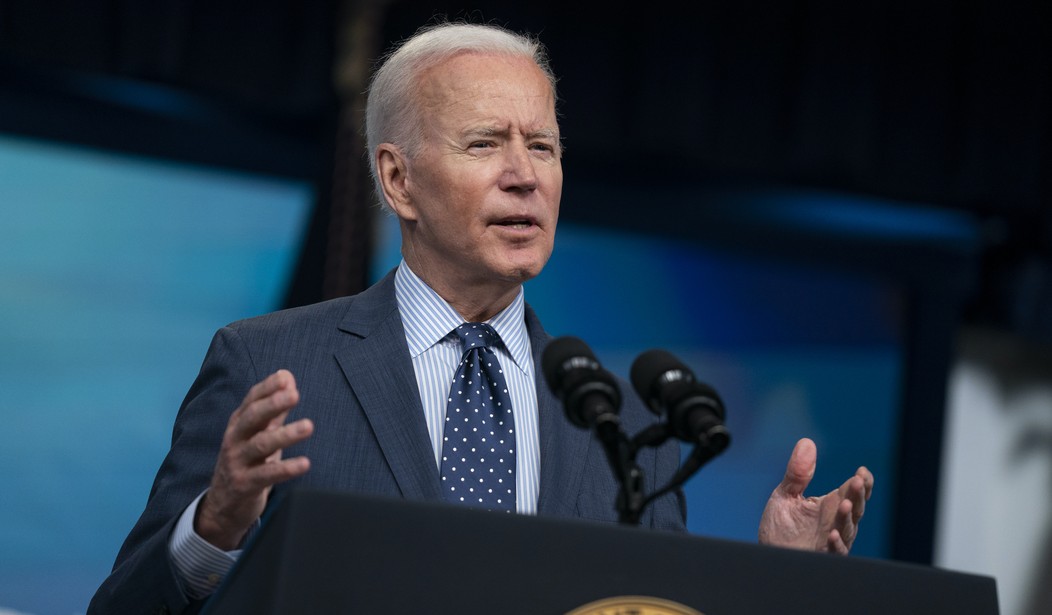Only 25 million doses? What happened to the 80 million Joe Biden promised to deliver by the end of this month? At least this time Biden has a plan, or so the White House announced today.
And the plan is to hand most of them off to a multi-national consortium:
President Joe Biden plans to allocate 75% of unused COVID-19 vaccines through the U.N.-backed COVAX global vaccine sharing program, the White House announced Thursday.
The White House unveiled the allocation for sharing the first 25 million doses with the world. The U.S. has said it plans to share 80 million vaccine doses globally by the end of June. The administration says 25% will be kept in reserve for emergencies and for the U.S. to share directly with allies and partners.
“As long as this pandemic is raging anywhere in the world, the American people will still be vulnerable,” Biden said in a statement. “And the United States is committed to bringing the same urgency to international vaccination efforts that we have demonstrated at home.”
Let’s start by pointing out that this is a smart idea. Why reinvent the distribution wheel, after all, when we can use an already-established system run (mainly) by allies? Biden eventually came to the same conclusion about the Operation Warp Speed logistical planning here in the US, even while claiming that (a) he had no vaccines when he took office and (b) no distribution plans either. On January 20, the US had already delivered nearly 22 million injections of both the Pfizer and Moderna vaccines, including two into the arm of one Joseph Robinette Biden.
Biden’s only real change to the existing logistical plan was to open federal vaccination centers, which turned out to be a waste of money. That flop likely informed the White House plan to use COVAX rather than build a parallel system, and wisely so. However, the UN set up COVAX over a year ago, and by mid-summer 2020 had 165 countries participating in it — well before the development of any vaccine. Biden could have joined COVAX on Day One of his presidency and pledged excess vaccines for distribution through it after achieving a high level of vaccinations at home.
Furthermore, Biden seems to be coming up short on a pledge he made less than three weeks ago:
President Joe Biden announced on Thursday the first details of the U.S. sending 80 million COVID-19 vaccines overseas to combat the ongoing global pandemic.
“Today, we’re providing more detail on how we will allocate the first 25 million of those vaccines to lay the ground for increased global coverage and to address real and potential surges, high burdens of disease, and the needs of the most vulnerable countries,” Biden said in a statement.
“At least 75 percent of these doses—nearly 19 million—will be shared through COVAX, including approximately 6 million doses for Latin America and the Caribbean, approximately 7 million for South and Southeast Asia, and approximately 5 million for Africa, working in coordination with the African Union and the Africa Centres for Disease Control and Prevention. The remaining doses, just over 6 million, will be shared directly with countries experiencing surges, those in crisis, and other partners and neighbors, including Canada, Mexico, India, and the Republic of Korea,” he said.
So the plan from the White House is to give COVAX 19 million doses, and keep six million around for our closest neighbors and friends. That leaves Biden about 55 million doses short. Why? The problem might be the potential contamination of AstraZeneca and Johnson & Johnson vaccines:
In March, Emergent’s Baltimore facility accidentally contaminated 15 million Johnson & Johnson doses with the active ingredient of AstraZeneca’s vaccine. Production at the plant stopped in April and the FDA began investigating the matter.
The agency has been trying to determine whether Emergent also contaminated any of the other millions of doses of the J&J and AstraZeneca vaccines it made. While available testing methods can identify major contamination problems, they are not always capable of tracing small amounts of contamination.
To clear the doses manufactured at Emergent as safe, the FDA has asked AstraZeneca and J&J to assess any risks from possible trace contamination — a process that has taken several weeks. The agency is expected to make an announcement in the coming days about whether the shots made by Emergent are fit for use.
Some of the doses included in the risk assessment include AstraZeneca shots the U.S. government has already shipped to Mexico and Canada, the two individuals familiar with the matter said. The U.S. sent those doses abroad in March before the Biden administration became aware of the contamination at the Emergent plant in Baltimore. Canadian and Mexican officials said at the time that AstraZeneca assured them that the doses were safe for use.
Fair enough, but Biden and his team were made aware of this two months before Biden promised to ship 80 million doses by the end of this month. This has the smell of Biden shooting off his mouth without being informed on the issue.
And to a large extent, this has the appearance of outsourcing that issue rather than a plan to match Biden’s pledge. It’s a good step forward, a point that shouldn’t be lost in this criticism, and since we are now in position to do a great deal to help other countries contain their outbreaks, we should be prepared to do so quickly. The point, however, is that we should have prepared for this obvious eventuality long before this — and if COVAX is the solution, we could have had this in place months ago.







Join the conversation as a VIP Member